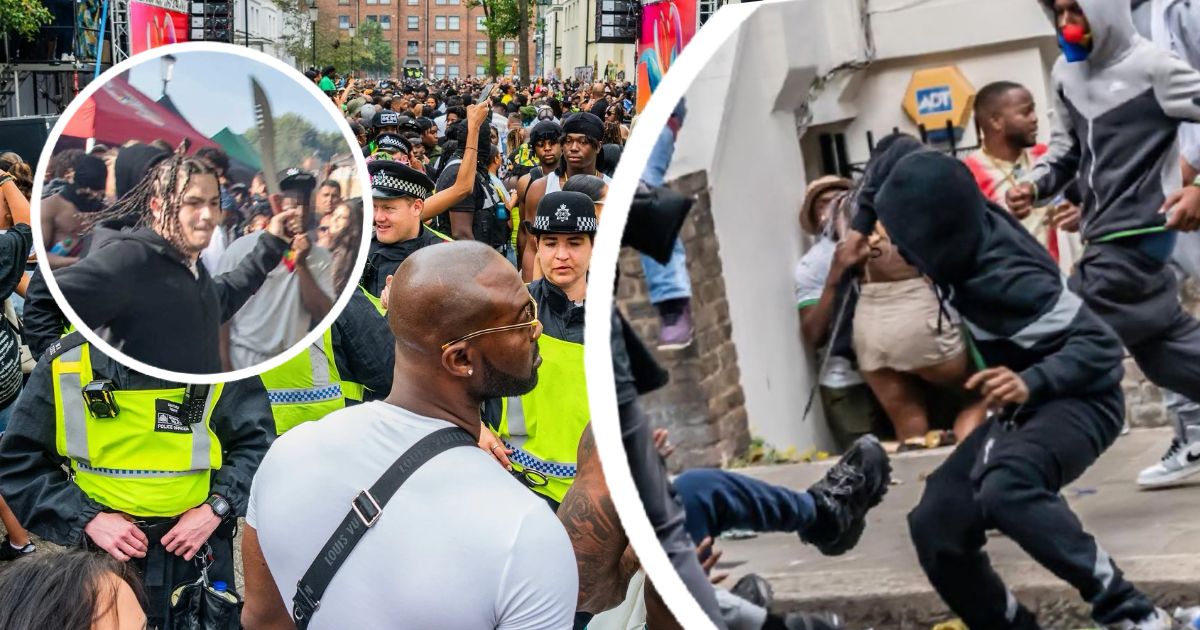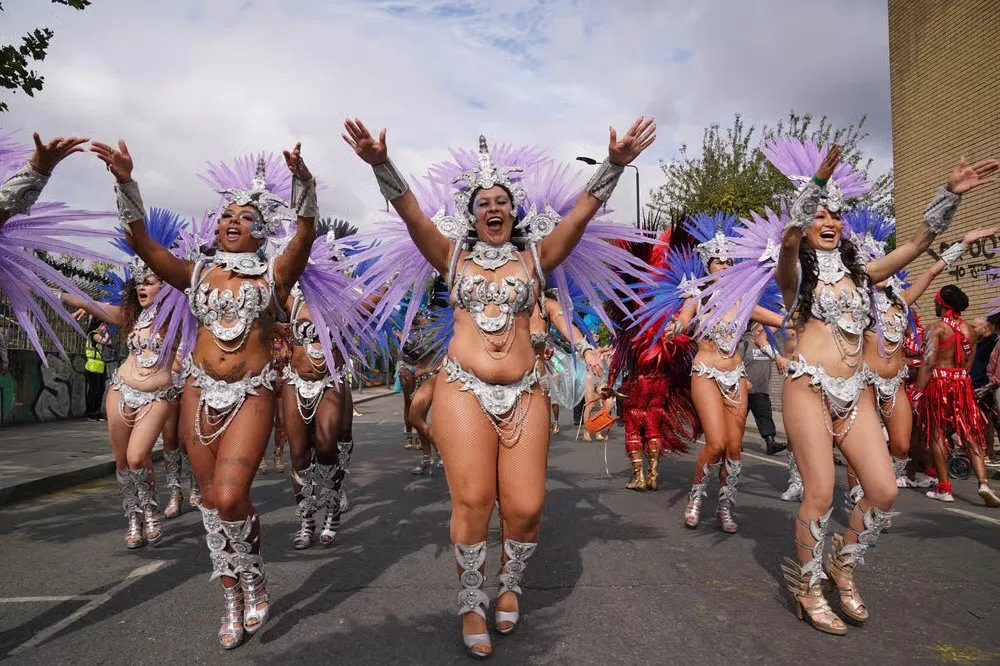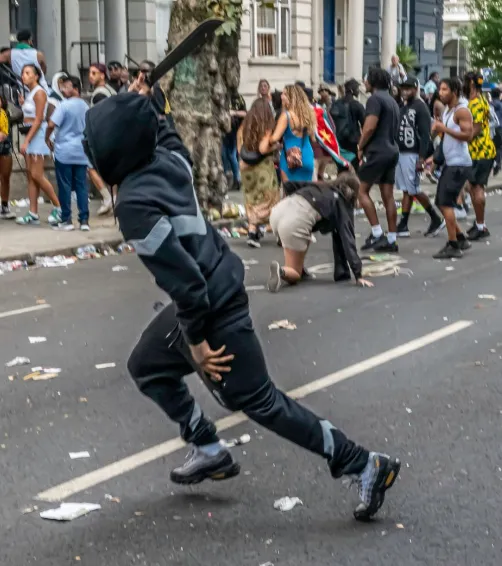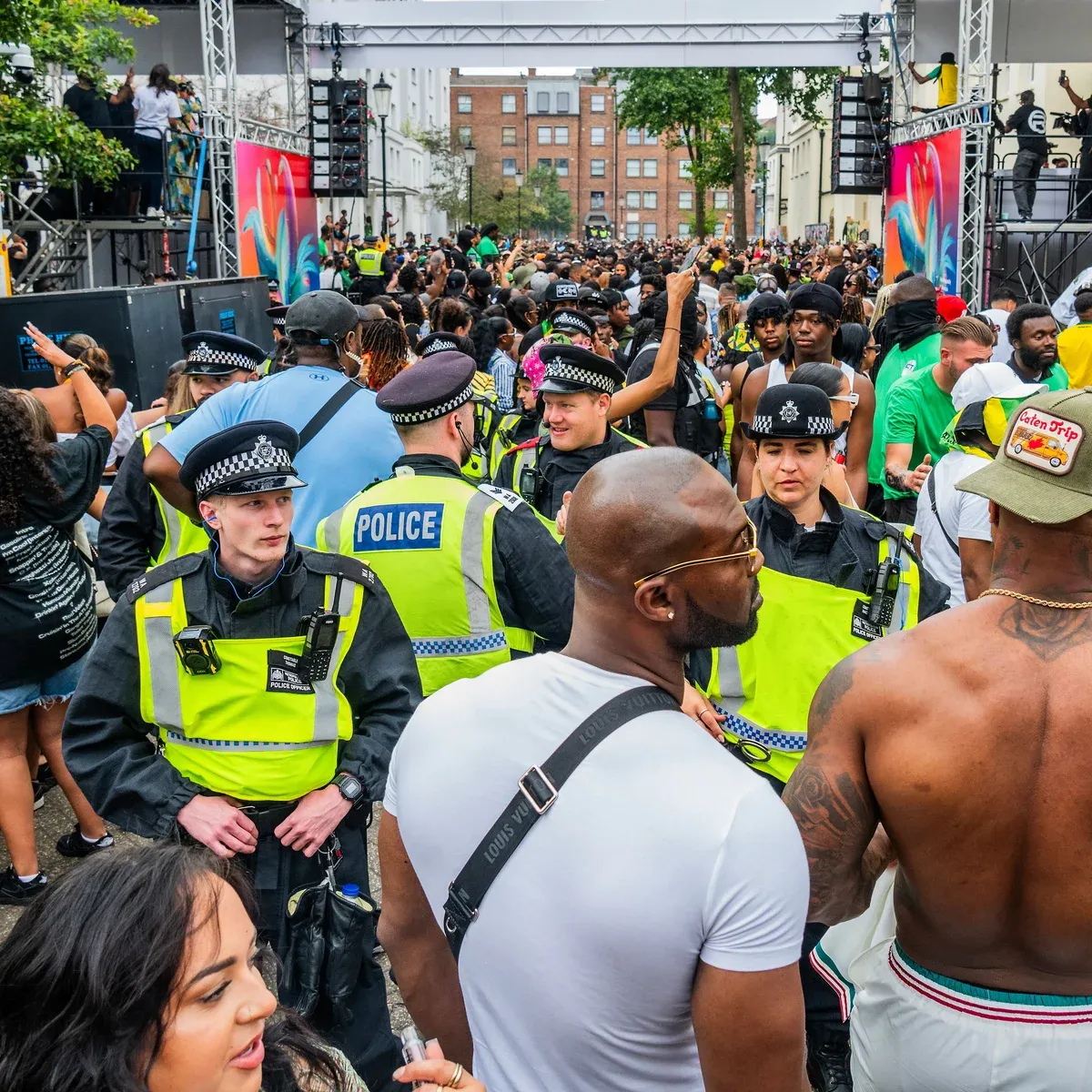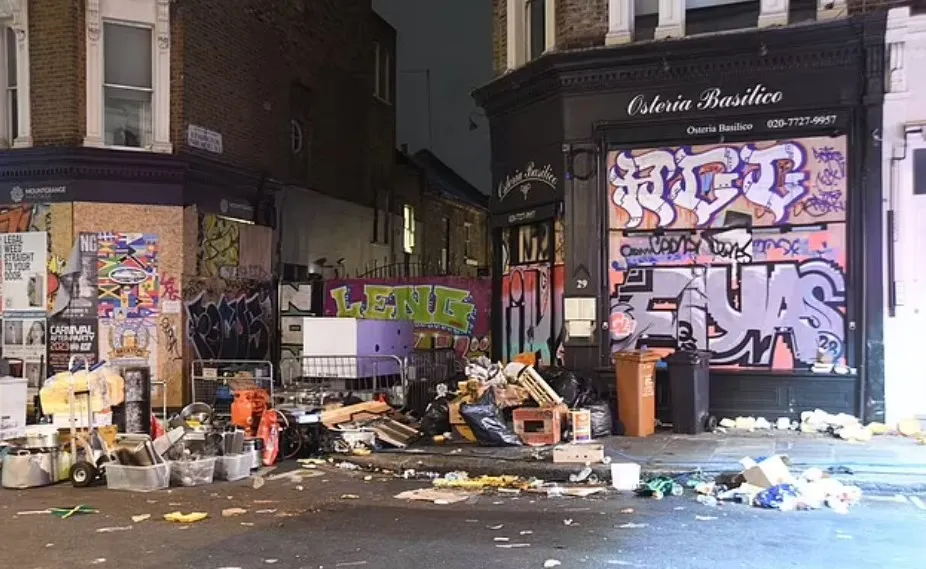🔴 NOTTING HILL CARNIVAL: HAS LONDON’S STREET PARTY TURNED ROGUE?
London’s iconic Notting Hill Carnival faces harsh scrutiny as soaring arrests, weapons seizures and tech crackdowns raise stark questions over its survival.
Every August Bank Holiday, West London prepares itself for an event that has become both a cultural celebration and a public order nightmare, and the 2025 edition of the Notting Hill Carnival has been no different in the questions it raises about its relevance, security, and future.
What began in 1966 as a spirited showcase of Caribbean heritage now operates as much under police planning grids as it does sound systems, and while the steel bands still march, so too do the statistics of violence that follow them.
The Metropolitan Police entered this year’s weekend with a plan that reads more like an anti-terrorism briefing than a festival management note: one hundred arrests before the first drum was hit, eleven firearms seized, forty knives removed from circulation, and two hundred and sixty-six known offenders ordered to stay away under bail and probation restrictions.
Knife arches, stop-and-search powers and live facial recognition have become as much a part of the scenery as floats and sequins, and the message is clear – London is bracing for impact before the first can of Red Stripe is even opened
This readiness is not paranoia but precedent. The figures from 2024 still speak loudly: two murders, eight stabbings, thirteen sexual offences and more than three hundred arrests, including assaults on officers and emergency staff.
The grim annual ritual is well known to the trauma teams at St Mary’s Hospital, who treat Carnival weekend as a shift from celebration to triage. Each year’s cleanup crews sweep more than bottles and glitter – they sweep up the evidence of what is increasingly seen as a festival that invites disorder as much as it does dance.
It is not fashionable to question the Carnival, but it is journalistic duty to point out that its original purpose, to unify and celebrate, now seems out of joint with its outcomes.
But I would like to personally make the case with blunt force here: residents now board up windows, shopkeepers hire private security, and the police face spitting, punching and headbutts while being told to smile. I would like to suggest that nothing short of murder, seems to breach the festival’s tolerance, and even that questionable now.
This is not nostalgia for some golden past; it is a statement of hard fact. The geography too jars with the reality – streets of £10 million homes turned into barricaded corridors, the event’s Trinidadian roots sitting uneasily alongside a predominantly Jamaican heritage, diluted further by imported sound systems and rap culture. In short, the cultural signal is blurred, the legal and policing challenges are sharp
It is not without irony that the same authorities who clamp down on youth gatherings, protests and public events without licences are forced to grin through what amounts to a sanctioned suspension of normality for three days in West London.
There is no other event in the capital that sees officers told not to dance or fraternise, to maintain professionalism even as open drug use and public disorder play out at their feet. Facial recognition vans sit at the edges of streets built on Victorian respectability, quietly scanning for those whose faces match wanted lists. When the steel pans stop, the language of the press release will bppe familiar: another successful Carnival, another best ever, another community triumph. But the figures will remain stubbornly the same.
So where does that leave the Carnival? It is easy to say “move it to a park,” and easier still to argue that tradition cannot be uprooted.
But when an event brings with it weapons seizures more akin to a serious crime operation, when emergency workers must steel themselves against assaults, and when two deaths, eight stabbings and three hundred arrests are just part of the running total, is it unreasonable to ask whether the format, the location, and indeed the future of the event need to be fundamentally reconsidered?
Celebrating culture is one thing; excusing chaos under its banner is another. So as the floats pack up and the last cans are swept away, London will again hear the familiar refrain – best Carnival yet – but the question persists like bass through concrete: how many more “best yet” weekends can carry these numbers before the city admits that this event may now be too big, too dangerous, and too disconnected from its roots to justify itself anymore?
Well, that’s all for now. Have a great carnival weekend if your attending, But until our next article, please stay tuned, stay informed, but most of all stay safe, and I’ll see you then.


